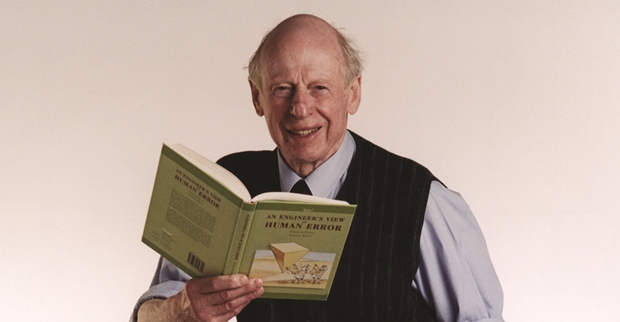Industry mourns death of Dr. Trevor Kletz, pioneer in chemical process safety
11/13/2013 12:00:00 AM
The US Chemical Safety Board (CSB) said Wednesday that it was saddened to learn of the death of the one of the world’s greatest authorities on chemical process safety, Dr. Trevor Kletz.
 Starting as a research chemist in the United Kingdom, Dr. Kletz’s career in industry established him as an expert in chemical process safety, safety culture, and as an advocate -- indeed the father of -- the concept of inherently safer technology and processes.
Starting as a research chemist in the United Kingdom, Dr. Kletz’s career in industry established him as an expert in chemical process safety, safety culture, and as an advocate -- indeed the father of -- the concept of inherently safer technology and processes.One of his seminal papers was entitled, “What You Don’t Have Can’t Leak.” His teachings on accident investigations refocused the emphasis from individual lapses to systems failures and safer design. These concepts fostered a revolution in modern safety management thinking.
After retiring in 1982, Dr. Kletz established a second career as an author, speaker and academic. He served in recent years as adjunct professor of the Texas A&M University and Visiting Professor of Chemical Engineering at Loughborough University in the UK.
In addition, commentary from Dr. Kletz -- excerpted from a CSB interview with him -- is featured prominently in the 2008 CSB safety video, “Anatomy of a Disaster,” which tells the story of the BP Texas City refinery accident in 2005 that killed 15 workers and injured 180 others.
In the video, Dr. Kletz says: “There's an old saying that if you think safety is expensive, try an accident. Accidents cost a lot of money. And, not only in damage to plant and in claims for injury, but also in the loss of the company's reputation.” And in another segment, on the company’s reporting and learning culture: “Well, after an accident, managers often say, ‘I didn't know this was happening or not happening,’ as the case may be, ‘if I'd known it, I'd have stopped it.’ Now this is bad management. It's the manager's job to know what is going on. And, he can do that by going round and by keeping his eyes open and reading the accident reports in detail.”
Another comment from that video notes that accident prevention should be about looking for root causes, and not individual blame: “For a long time, people were saying that most accidents were due to human error and this is true in a sense but it's not very helpful. It's a bit like saying that falls are due to gravity.”
The titles of just some of Dr. Kletz’s many authoritative books display his keen focus on making processes safer: “What Went Wrong?” “Lessons from Accidents,” “Process Plants -- a Handbook for Inherently Safer Design,” and “By Accident -- a Life Preventing Them in Industry.”
Dr. Kletz was 91 years old.






Comments